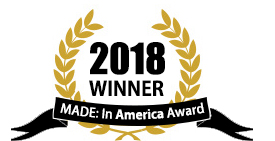Chemical Reactivity with Metals, Plastics and Synthetic Materials
How to safely clean everything from Mercury to Mayonnaise
We know messes here at Milwaukee Dustless. We also know how to clean up a mess. From Acetaldehyde to Zinc, we've advised people on how to clean up all manner of chemicals. Many people do not realize the disastrous effects resulting from the combination of certain materials and specific chemical types - we are here to help. View our expansive chart on which chemicals react with different types of materials and read a few of our highlights below. Always clean safely!
Chemical Reactivity with Brush Materials
A - No effect
B - Minor effect
C - Moderate effect
D - Severe effect
|
||||||||||||||||||||||
Beer: Carbon Steel - Severe effect
Listen up home brewers: beer is corrosive. It contains living microfauna which can lead to galvanic corrosion when put in contact with certain substances. Most brewers these days use stainless steel, copper, brass or aluminum equipment to ensure stable brewing and reduce the possibility of corrosion. Please also keep in mind that the cleaning equipment you use can have an effect on your final product as well. Carbon Steel reacts negatively with the acidic elements and the living microfauna in beer. This can lead to chemical reactions ranging from an off-taste in your finished product, to the deterioration of your brewing equipment. For brushes that can be safely used on home brewing equipment, we recommend our Nylon brushes.
Sulfur Dioxide: ABS - Severe effect
Sulfur Dioxide is frequently used in laboratories, food manufacturing and wineries. The chemical is used as a preservative in dried foods, a reducing agent, a refrigerant and a solvent. Though it is considered safe for common use, it is known to be severely reactive with materials made of ABS (Acrylonitrile butadiene styrene). When cleaning surfaces or equipment that has come in contact with sulfur dioxide we recommend using one of our Natural Bristle or Wire Bristle brushes, depending on the surface you are cleaning.
Grease: Acetal (Delrin) - Moderate effect
Acetal (Delrin) is a resin-based polymer commonly used in everything from paintballs to insulin pens. As a material approved by the FDA, it has also been incorporated into some kitchen supplies like knife handles, spatulas and coffee machines. Besides avoiding the use of these products when cooking, we recommend using a natural brush to clean those drops of grease that, inevitably will fly out of your pan of bacon.
Sulfuric Acid: 316 Stainless, Nylon, Polyphenylene Sulfide, PVC - Severe effect
Commonly used as an industrial cleaning agent, designed to remove rust, oxidation, grease and any other variety of mess, sulfuric acid is undoubtedly useful in the home and at work. As a general rule, we recommend keeping it away from 316 Stainless Steel brushes, Nylon brushes, and polymer brushes like Polyphenylene Sulfide and PVC.
Mayonnaise: Carbon Steel - Severe effect
Carbon Steel cookware may be all the rage, but keep it away from that mayonnaise! The oils inside of the condiment reacts negatively with carbon steel, leaving an undesirable patina on your pots and pans. Granted, these stains will take a while to manifest, we recommend taking care to never put mayonnaise in contact with your carbon steel cookware, or to use carbon steel brushes to clean mayonnaise off of surfaces.
Urea: PVC - Severe effect
Urea is an organic compound used in fertilizers as a nitrogen source and is considered a valuable raw material for the chemical industry. Given that urea can cause irritation to skin, eyes and the respiratory system, it is important to use care when around this material. When placed in contact with PVC (Polyvinyl Chloride), urea can cause a severe chemical reaction. We recommend using Wire or Natural bristle brushes when cleaning surfaces or equipment that has been in contact with urea.Ethanol: PVC - Moderate effect
Most people know about ethanol from their trips to the neighborhood gas station. In fact, ethanol, or ethyl alcohol is the primary type of alcohol found in most alcoholic beverages. When the last guest has left your party and a suspicious pool of liquid is discovered in the corner, make sure to reach for a brush that does not contain PVC. PVC and ethanol have been known to create moderate chemical reactions.
Ink: Aluminum, 304 Stainless, 316 Stainless, Nylon, PVC - Moderate effect
Ink doesn't react severely with any surfaces, but it has been known to react moderately with Aluminum, 304 Stainless Steel, 316 Stainless Steel, Nylon and PVC. When cleaning ink, we suggest a natural brush fiber.
Notable Materials that are NOT known to react negatively with any chemicals
- Coffee
- Glucose
- Carbon Monoxide
- Latex
- Arsenic Plating & Arsenic Salts
- Asphalt
- Bay Oils
- Beet Sugar Liquids
Contact Milwaukee Dustless today to receive a custom quote or to learn more how our products can fit your applications!

ALL RIGHTS RESERVED
WEBSITE DEVELOPED BY: EMSAR DESIGN LTD





















